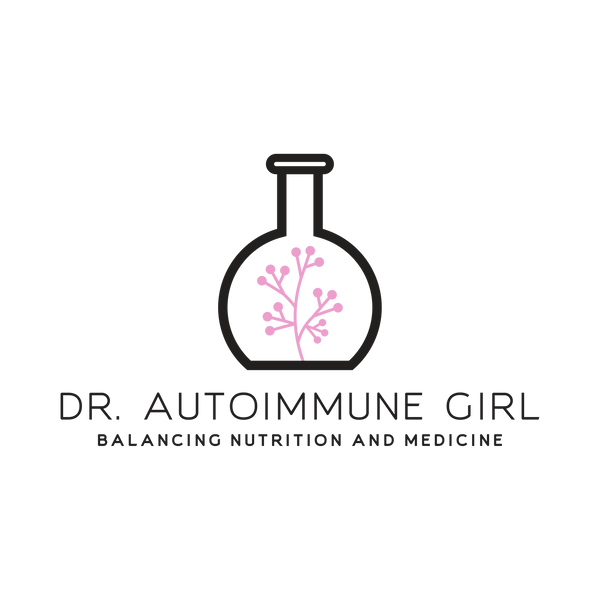The Role of Vitamin D and Gut Health
We are all familiar with vitamin D and its association with bone health. All those ads about calcium and vitamin D haven’t left our thoughts! However, there is so much more to vitamin D than bone health. Vitamin D is considered a prohormone that is converted at the liver and kidney into the hormone 1,25-dihydroxy vitamin D3. There are vitamin D receptors that this hormone binds to in immune cells and skeletal muscle cells. For this reason, it plays a critical role in maintaining optimal health measures and minimizing many chronic illnesses.
With that being said, the gut also plays a key role in maintaining optimal health. More specifically our microbiome. The microbiome consists of bacteria, viruses, and fungi that work together in harmony to create a balance within our gut. The microbiome regulates the mucosal immune system. This is our body’s first line of defense against pathogens entering our body.

So how does Vitamin D impact our gut health?
The composition of the gut microbiome can be altered by vitamin D status and exposure. This is done by three key mechanisms:
1. Vitamin D deficiency or supplementation changes the microbiome, and manipulation of bacterial abundance or composition impacts disease development.
2. Lack of vitamin D can impair physical and functional barrier integrity (leaky gut), which leads to stimulation or inhibition of immune responses
3. Our natural, innate immunological defenses may be compromised in the setting of vitamin D deficiency
Vitamin D and the Microbiome1
Our gut is really where the bulk of our immune system resides; 70% of our immune system is located in the gut and needs healthy and regular food intake to support our overall health. There are hundreds of species of bacteria and more than 100 trillion live in our gut. Together with fungi and viruses, these bacteria make up the gut microbiome in our body. Our digestive system functions at its optimum when there is a balance of the good and bad gut bacteria living in it. This is key because new evidence suggests that specific bacteria can promote or inhibit our immune response. Two key bacteria that are important are Firmicutes (F) and Bacteroidetes (B). It is well established that altered F/B ratio alters intestinal permeability and contributes to the pro-inflammatory state. Vitamin D supplementation has been shown to positively impact this ratio by increasing Bacteroides, as well as other health-promoting probiotics such as Akkermansia and Bifidobacterium. Bacteroides is important because it ferments fiber into acetates and propionates and can produce short-chain fatty acids, which are intestinal epithelial-specific nutrients that protect the intestinal mucosal barrier and reduce inflammation.
Vitamin D and Leaky Gut2
Our gut wall creates a barrier between ourselves and the external environment. Ensuring this wall is not “leaky” (impermeable) keeps pathogens and toxins from leaking into our bloodstream. Vitamin D helps to maintain this barrier function. There are known vitamin D receptors in our gut lining, and vitamin D supplementation has been found to strengthen the epithelial barrier by decreasing that permeability that would let toxins leak through. Multiple studies have found that Vitamin D can modulate and improve the tight junctions in our gut improving intestinal permeability (leaky gut).
Vitamin D and our Immune system3
Let’s go back to the fact that 70% of our immune system is located in the gut. With all the benefits of vitamin D, it’s of no surprise that Vitamin D has a direct effect on the immune system. Vitamin D has been shown to regulate innate and adaptive immune systems. Within the immune system, vitamin D inhibits various T-cells that increase inflammation and promotes T-regulatory cells. This translates into an ability to downregulate the inflammatory process. While its ability to downregulate inflammatory cytokines is important, a key mechanism that impacts immunity and gut health is the ability to increase T-regulatory cells.
Why is this important?
When we have a leaky gut, the food we intake breaks down but can leak into the bloodstream. When this happens, we develop immune responses against these food proteins, which leads to food intolerances. By increasing T-regulatory cells we can keep these unnecessary responses at bay.
The Key to Healing
If we combine all these mechanisms by which vitamin D impacts our gut health its benefits become very clear! With so many people being identified as deficient, the question then is how much should I take?
In 2011, The Endocrine Society stated that a desirable serum concentration of 25(OH)D is >75 nmol/L. It also reported that at least 2000IU/day of supplemental vitamin D might be required in adults and at least 1000IU/day in children. The Institute of Medicine states the upper limit of intake per day is 1000IU for infants and 4000IU per day for 9 and older.
Bottom line, check your levels, if deficient talk to your doctor about supplementing or increasing sun exposure. Vitamin D and your gut health go hand-in-hand!
References
1. Singh, P., Rawat, A., Alwakeel, M., Sharif, E., & Al Khodor, S. (2020). The potential role of vitamin D supplementation as a gut microbiota modifier in healthy individuals. Scientific reports, 10(1), 21641. https://doi.org/10.1038/s41598-020-77806-4
2. Yamamoto, E., Jorgensen, T. Relationships Between Vitamin D, Gut Microbiome, and Systemic Autoimmunity. Front. Immunol., 21 January 2020 | https://doi.org/10.3389/fimmu.2019.03141
3. Tabatabaeizadeh, S. A., Tafazoli, N., Ferns, G. A., Avan, A., & Ghayour-Mobarhan, M. (2018). Vitamin D, the gut microbiome, and inflammatory bowel disease. Journal of research in medical sciences: the official journal of Isfahan University of Medical Sciences, 23, 75. https://doi.org/10.4103/jrms.JRMS_606_17
